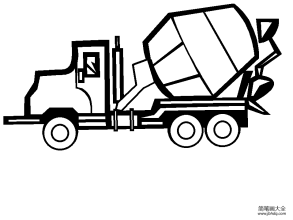Maintaining Your Self-Loading Mixer: Essential Tips for Longevity and Efficiency
- sophieaimix
- Apr 16, 2024
- 2 min read
Self-loading mixers have revolutionized the way concrete is mixed and transported on construction sites. These versatile machines offer convenience, efficiency, and cost-effectiveness, making them indispensable assets for contractors worldwide. However, like any other equipment, regular maintenance is crucial to ensure optimal performance and longevity. In this article, we'll explore essential tips for maintaining your self-loading mixer to keep it operating smoothly and efficiently.
Regular Inspection and Cleaning:
Regular inspection and cleaning are the foundation of proper maintenance for an aimix self loading concrete mixer. Before and after each use, visually inspect the mixer for any signs of damage, wear, or leaks. Pay close attention to critical components such as the drum, hydraulic system, and electrical connections. Clean the mixer thoroughly after each use to remove any concrete residue, dirt, or debris that could compromise its performance or lead to corrosion.

Lubrication:
Proper lubrication is essential to keep the moving parts of your self-loading mixer operating smoothly and efficiently. Follow the manufacturer's recommendations regarding the type and frequency of lubrication for various components such as bearings, gears, and hydraulic cylinders. Overlooking lubrication can lead to premature wear and tear, resulting in costly repairs and downtime.
Hydraulic System Maintenance:
The hydraulic system is the heart of a self-loading mixer, responsible for powering the drum rotation, loading, and discharge functions. Regularly check hydraulic fluid levels and top up as needed using the recommended hydraulic fluid. Inspect hydraulic hoses, fittings, and seals for any signs of damage or leaks, and replace them promptly to prevent system failure or contamination.
Electrical System Check:
The electrical system of a self-loading mixer controls various functions such as starting, stopping, and operating auxiliary equipment. Periodically inspect electrical connections, wiring, and components for signs of wear, corrosion, or damage. Ensure that all connections are tight and secure to prevent electrical issues or malfunctions during operation.
Tire Maintenance:

The tires of a self-loading mixer are subjected to heavy loads and rough terrain, making proper tire maintenance essential for safe and efficient operation. Check tire pressure regularly and adjust it to the manufacturer's specifications to ensure optimal traction and stability. Inspect tires for any signs of damage, such as cuts, punctures, or uneven wear, and replace them as needed to prevent accidents or breakdowns.
Training and Operator Care:
Proper maintenance of a self-loading mixer also involves training operators to operate the equipment safely and efficiently. Provide comprehensive training to operators on the correct procedures for starting, operating, and shutting down the mixer, as well as basic troubleshooting techniques. Encourage operators to handle the equipment with care, avoid overloading, and report any issues or abnormalities promptly to prevent further damage so that to shut down the price of self loading concrete mixer.
Conclusion:
In conclusion, maintaining a self-loading mixer is essential to ensure its longevity, efficiency, and safety on construction sites. By following these essential tips for regular inspection, cleaning, lubrication, hydraulic system maintenance, electrical system checks, tire maintenance, and operator care, you can keep your self-loading mixer operating smoothly and reliably for years to come. Investing time and effort in proper maintenance will not only prolong the life of your equipment but also contribute to safer and more efficient construction operations.






Comments